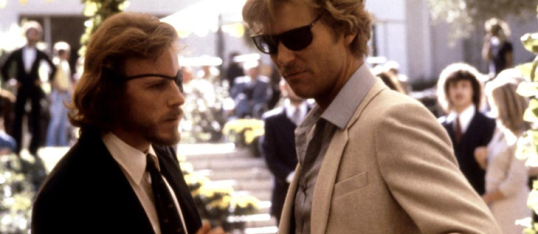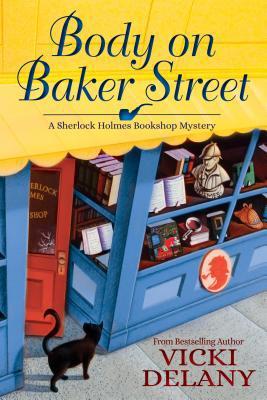Yesterday, after it was announced that actor John Heard had been found dead in a Palo Alto hotel room, I lost track of how many people declared that Cutter’s Way, a 1981 film in which Heard co-starred with Jeff Bridges, was one of their favorite movies of all time. (That includes quite a few people who write for this very site.) In fact, people were so enthusiastic about Cutter’s Way that I quickly decided that this was a film that I needed to watch for myself. So, last night, after watching All About Eve on TCM and My Science Project with the Late Night Movie Gang, I curled up on the couch and I watched Cutter’s Way.
Technically, Cutter’s Way is a murder mystery but it’s actually a lot more. In the grand noir tradition, the mystery is less important than the milieu in which it occurs. Cutter’s Way takes place in Santa Barbara, California, which the film presents as being a microcosm of America. It’s place where the rich are extremely rich and the poor are pushed to the side and expected not to complain. The Santa Barbara of Cutter’s Way is controlled by new money and haunted by old sins. It’s a world that is perfectly captured, by director Ivan Passer and cinematographer Jordan Cronenweth, in the film’s haunting opening scene:
John Heard plays Alex Cutter. Years ago, Cutter served in Vietnam and returned with one less eye, one less arm, and one less leg. An angry alcoholic, the type who always looks like he’s in desperate need of a shower and a shave, Cutter exists on the fringes of society. Like many alcoholics, Cutter is a master manipulator. When he has to, he can turn on the charm. When the police are called after a drunken Cutter purposefully destroys his neighbor’s car, we suddenly see a totally different Alex Cutter. He’s polite and apologetic, explaining that he was merely swerving to avoid something in the road and, by the way, he served his country in Vietnam. As soon as the police leave, the real Cutter comes out. He gets his bottle and starts to rant about how much the world owes him. Watching the film, you find yourself understanding why some people might want to push this one-legged, one-armed, one-eyed veteran down a flight of stairs, that’s how obnoxious Alex Cutter can be.
And yet, there are people who love Alex Cutter. There’s his long-suffering wife, Mo (Lisa Eichhorn). Mo lives in squalor with Cutter, taking care of him and putting up with his bitterness. There’s the local bar owner, who could probably put his kids through college on Cutter’s bar tab. (He even drives Cutter home in the morning, after everyone else has deserted him.) And finally, there’s Richard Bone (Jeff Bridges).
Bone is Cutter’s best friend. Whereas Cutter is perpetually pissed off, Bone is almost always laid back. Whereas Cutter feels that everything is his business, Bone prefers to remain detached from the world. Mention is made of Bone being a graduate of the Ivy League but he spends most of his time giving tennis lessons and sleeping with wealthy women. Bone takes care of Cutter, though their friendship is occasionally hard to figure out. Why does Bone stick with Cutter despite all of Cutter’s abuse? Perhaps Bone feels guilty because he avoided being drafted while Cutter lost half of his limbs in Vietnam. Or maybe it’s because Bone is in love with Mo.
One night, when Bone is leaving a hotel, he sees a man in an alley. The man appears to be hiding something in a dumpster. Later, when the body of a woman is found in that same dumpster, Bone realizes that he probably saw the murderer. Even more so, Bone thinks that the man resembled J.J. Cord (Stephen Elliott), one of the richest men in Santa Barbara.
Bone, however, isn’t sure that Cord’s the murderer. Even more so, even if Cord was the murderer, Bone prefers to not get involved. However, Cutter is sure that Cord’s the killer. To Cutter, it makes perfect sense. If men like Cord were willing to send boys to Vietnam and then refuse to take care of them when they returned both physically and mentally maimed by the experience, then why wouldn’t they also think that they could get away with murdering some hitchhiker?
Soon, Cutter has met the dead girl’s sister, Valerie (Ann Dusenberry). Cutter says that his plan is to blackmail Cord. He badgers the reluctant Bone into working with him. It quickly becomes obvious, however, that Cutter is after more than money. He is obsessed with proving that this rich and powerful man is a murderer. And he’s not going to let anyone stand in his way. Not even a stuffed animal:
As I said, Cutter’s Way is about much more than just a murder. It’s a film about class differences, with even the otherwise slick Bone discovering how difficult it is to infiltrate Cord’s wealthy world. It’s a film about disillusionment, cynicism, and the fleeting promise of happiness. As angry as Cutter is, he still ultimately possesses the idealism that both Bone and Mo have lost. He still believes in right and wrong. While that angry idealism may make Cutter a pain in the ass, it’s also his redeeming feature. As the youngest of them, Valerie is still an optimist but she is also the least prepared to deal with the sordid reality of the world around her. Bone and Mo, meanwhile, both appear to have surrendered their belief that the world can be and should be a better place. Ultimately, Cutter’s Way is a film that forces you to consider what you would do if you were in the same situation. Cutter’s Way is not a great title, largely because it makes the film sound like a CW western, but it’s an appropriate one. The entire film is about Cutter’s way of viewing the world and whether or not Bone will follow Cutter or if he’ll continue to refuse to get involved.
(The novel that the film’s based on was called Cutter and Bone. According to Wikipedia, the title was changed because audiences thought the movie was a comedy about surgeons.)
I have to agree with those who have called Cutter’s Way a great film. Not only is it gorgeous to look at but it’s one of the best acted films that I’ve ever seen, from the stars all the way down to the most minor of roles. John Heard dominates the film, giving a performance of almost demonic energy but he’s perfectly matched by Jeff Bridges. Bridges, back in his incredibly handsome younger days, gives a subtle and powerful performance as a man struggling with his conscience. In the role of J.J. Cord, Stephen Elliott doesn’t get much screen time but he makes the most of it. When he first see him, he’s riding a white horse and rather haughtily looking down on the world around him. When he last see him, he delivers a line of such incredible arrogance that it literally left me stunned. Though, when compared to Bridges and Heard, their roles are underwritten, both Lisa Eichhorn and Ann Dusenberry more than hold their own, providing able and poignant support.
Cutter’s Way is a great film and one that everyone should watch if they haven’t.

Advertisements Share this:





